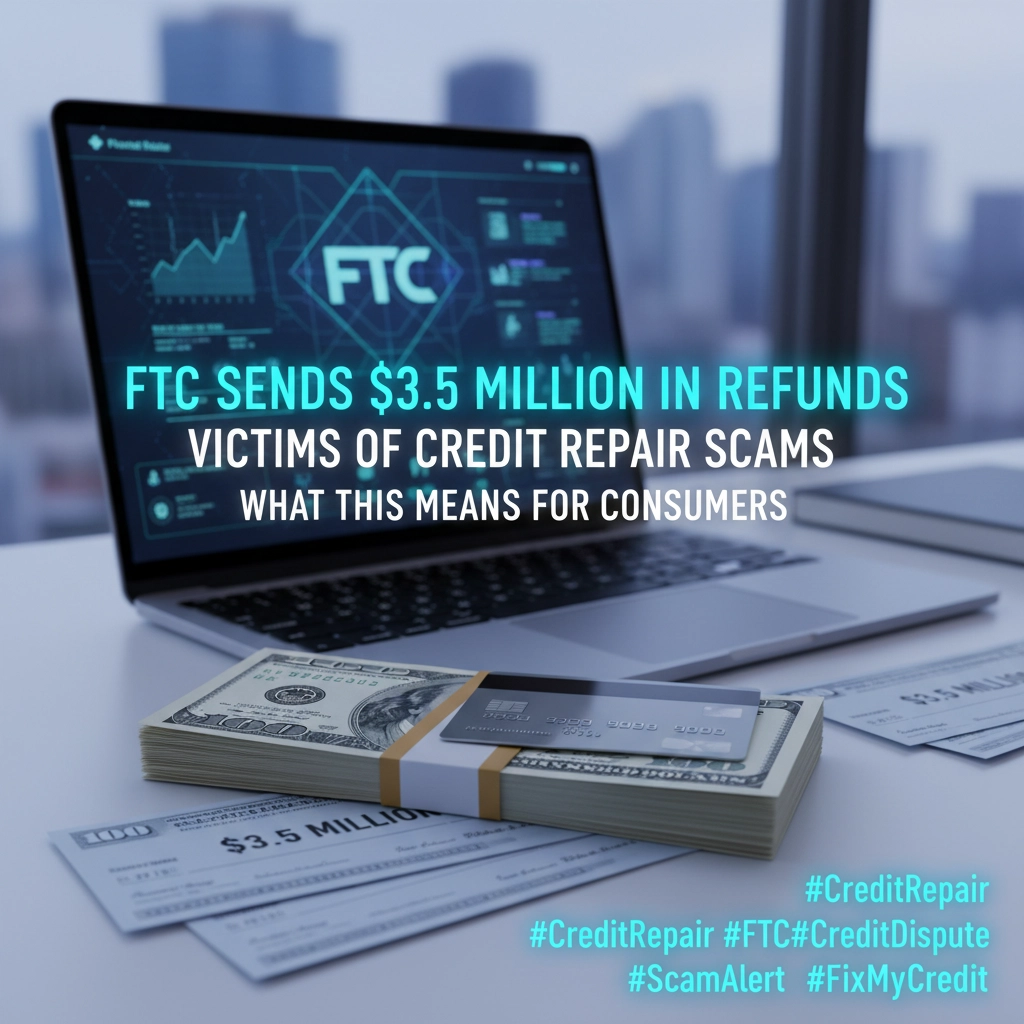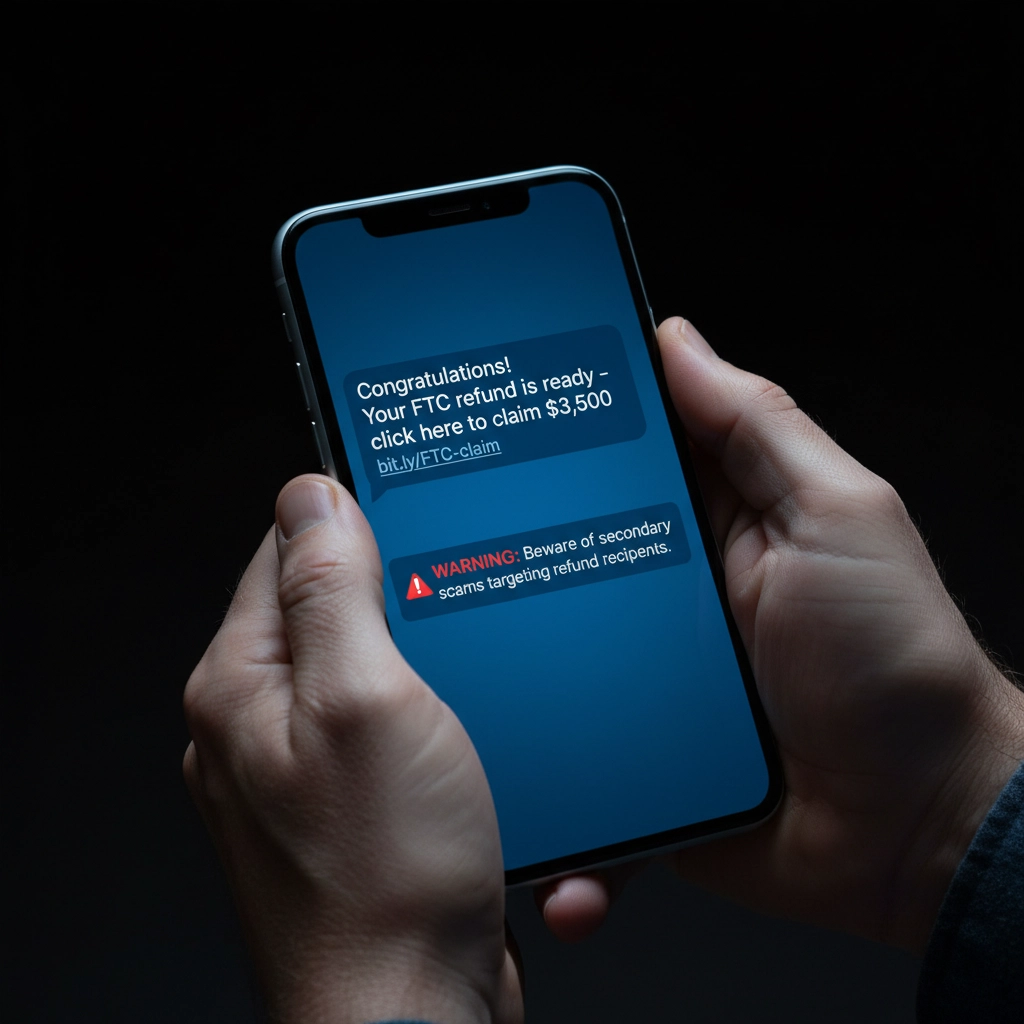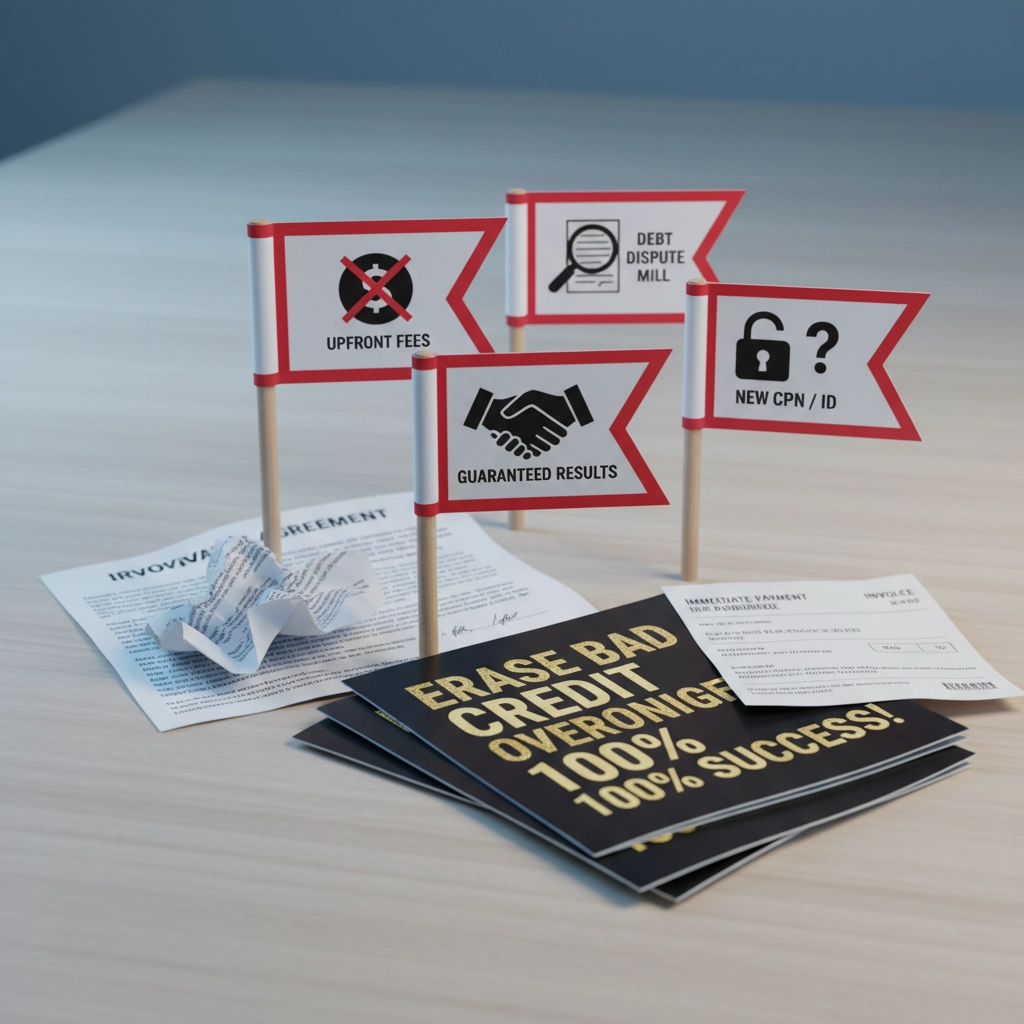FTC Sends $3.5 Million in Refunds to Victims of Credit Repair Scams: What This Means for Consumers #CreditRepair #FTC #CreditDispute #ScamAlert #FixMyCredit

Great news broke earlier this year when the Federal Trade Commission announced they were sending over $3.5 million in refunds to thousands of consumers who got burned by a major credit repair scam. If you're wondering whether this affects you: or if you're currently shopping around for credit repair help: this story has some crucial lessons that could save you serious money and heartache.
The Credit Game: How a $3.5 Million Scam Fooled Thousands
The scheme went by several names, including "The Credit Game" and "Credit University," and was run by Michael and Valerie Rando along with their companies. These weren't small-time operators: they managed to scam 9,224 consumers out of millions of dollars before the FTC stepped in.
Here's what makes this case so infuriating: the Randos charged people hundreds to thousands of dollars for services that delivered little to no actual value. They promised consumers they could boost credit scores through something called "credit piggybacking" and other questionable credit repair tactics. Even worse, they provided false information directly to credit reporting agencies, potentially making their victims' credit situations worse, not better.

But wait: it gets even more outrageous. The Randos didn't just scam people looking for credit help. They also pitched victims a supposed "business opportunity" to create their own bogus credit repair schemes. They falsely claimed people could make millions by operating their own credit repair companies. Some consumers were even encouraged to pay for these worthless services using their COVID-19 tax relief funds.
The FTC sued the Randos in 2022, and by June 2025, refund checks and PayPal payments were going out to victims. The settlement permanently banned the couple from the credit repair industry and required them to turn over assets to compensate their victims.
Your Money Back: How the Refunds Work
If you were a victim of The Credit Game scam, you should have received either a check or a PayPal payment. Here's what you need to know:
- Check recipients: You have 90 days to cash your refund check
- PayPal recipients: You have 30 days to accept the payment
- Missing your refund? Contact the refund administrator, Simpluris, at 833-296-0723
Important warning: The FTC never requires people to pay money or provide account information to get a refund. If someone contacts you claiming to be from the FTC and asking for payment or personal financial information, it's a scam. Hang up immediately and report it.
Red Flags: How to Spot Credit Repair Scams Before They Hit Your Wallet
The Credit Game case perfectly illustrates the warning signs you should never ignore. Here are the biggest red flags that should make you run in the opposite direction:
Upfront Fees Are Illegal
Any credit repair company that demands payment before performing services is breaking federal law. Period. Legitimate credit repair companies are required to wait until they've completed the work before charging you. If they're asking for money upfront, they're either scammers or they don't know the law: either way, you don't want to work with them.
Impossible Guarantees
No legitimate company can guarantee they'll remove accurate negative information from your credit report. Accurate negative items typically stay on your report for seven years, and that's just how the system works. If someone promises to "wipe your credit clean" or "remove anything for any reason," they're lying to you.

Overnight Miracles
Building good credit takes time. Anyone promising to boost your score by hundreds of points in days or weeks is setting you up for disappointment: and probably planning to take your money and disappear.
"Special Relationships" Claims
Credit repair companies claiming they have special relationships with credit bureaus or insider knowledge are feeding you a line. Credit bureaus deal with disputes through standardized processes that are available to everyone.
Business Opportunity Pitches
As The Credit Game case shows, some scammers try to recruit victims to become scammers themselves. Any credit repair company trying to sell you on starting your own credit repair business is a major red flag.
Know Your Rights: What the Law Actually Says
You have powerful legal protections when it comes to credit repair, and understanding them puts you in control:
The Credit Repair Organizations Act (CROA)
This federal law gives you specific rights:
- Companies cannot charge you until work is completed
- You must receive a written contract detailing services and costs
- You have three days to cancel any contract without penalty
- Companies cannot make false claims about what they can accomplish
Fair Credit Reporting Act (FCRA)
This law protects your credit report rights:
- You can dispute inaccurate information for free
- Credit bureaus must investigate disputes within 30 days
- You're entitled to free annual credit reports from all three bureaus
- You can add explanatory statements to your credit file
State Laws
Many states have additional protections beyond federal requirements. Some states require licensing for credit repair companies, impose bonding requirements, or provide additional cooling-off periods.
Take Control: What You Can Do Yourself (For Free)
Here's something the scammers don't want you to know: much of what legitimate credit repair companies do, you can do yourself at absolutely no cost. You have the right to dispute inaccurate information on your credit reports directly with the credit bureaus.

Your DIY Credit Repair Toolkit:
- Get your free annual credit reports from annualcreditreport.com
- Review each report carefully for errors, outdated information, or accounts you don't recognize
- Dispute inaccuracies in writing with the relevant credit bureau
- Follow up to ensure corrections are made
- Monitor your progress with regular credit report checks
Building Credit the Right Way
While you're cleaning up errors, focus on building positive credit habits:
- Pay all bills on time, every time
- Keep credit card balances low (under 30% of your limit, ideally under 10%)
- Don't close old credit cards unless they have high fees
- Only apply for new credit when necessary
- Mix different types of credit (credit cards, auto loans, etc.)
When Professional Help Makes Sense
Not everyone needs to hire a credit repair company, but legitimate services can be valuable if:
- You're dealing with complex disputes across multiple bureaus
- You don't have time to handle the paperwork and follow-up
- You're facing a major purchase (like a home) and need your credit optimized quickly
- You're overwhelmed by the process and need professional guidance
How to Choose a Legitimate Credit Repair Company
If you decide to hire help, here's how to find a reputable company:
Research Everything
- Check Better Business Bureau ratings and complaints
- Look up the company with your state attorney general's office
- Read reviews from multiple sources (not just their website)
- Verify any licenses required in your state
Ask the Right Questions
- What specific services will you provide?
- How much will this cost in total?
- How long do you estimate this will take?
- What happens if you can't improve my credit?
- Can you provide references from recent clients?

Get Everything in Writing
A legitimate company will provide:
- A detailed written contract
- Clear explanation of your cancellation rights
- Realistic timeline and expectations
- Transparent pricing with no hidden fees
The FTC's Ongoing Battle Against Credit Repair Scams
The Credit Game refunds are just one part of a much larger effort. In 2024 alone, FTC actions resulted in more than $339 million in refunds to consumers nationwide. The agency has pursued multiple similar cases, sending millions back to victims of various credit repair and debt relief scams.
This enforcement activity sends a clear message: the FTC is actively hunting down these scammers and working to get your money back when they succeed. But prevention is always better than trying to recover your losses after the fact.
Your Action Plan: Moving Forward Safely
Whether you're dealing with credit challenges right now or just want to be prepared for the future, here's your roadmap:
- Educate yourself about your credit rights and how credit scoring actually works
- Start with free resources like disputing errors yourself and building positive credit habits
- If you need professional help, thoroughly research any company before signing anything
- Stay vigilant for scam warning signs, especially upfront fees and unrealistic promises
- Report suspicious activity to the FTC, your state attorney general, and local consumer protection agencies
The Bottom Line: You're in Control
The Credit Game scam targeted people who felt helpless about their credit situations. The scammers preyed on that vulnerability, promising quick fixes and easy solutions that didn't exist. But here's what they couldn't take away from their victims: the real power to improve credit over time through legitimate means.
You don't need to fall for get-rich-quick schemes or miracle cures for bad credit. You have legal rights, free resources, and: if you choose to use professional help: the knowledge to find legitimate services that actually deliver value.
Your credit situation isn't permanent, and you're not powerless to change it. The tools and protections exist to help you succeed. The key is using them wisely and avoiding the shortcuts that lead to scams like The Credit Game.
Remember: if someone contacts you claiming to be from the FTC about a refund, verify their identity before sharing any information. And if you spot a credit repair scam, report it. Your vigilance helps protect other consumers from falling into the same trap.
#CreditRepair #FTC #CreditDispute #ScamAlert #FixMyCredit
